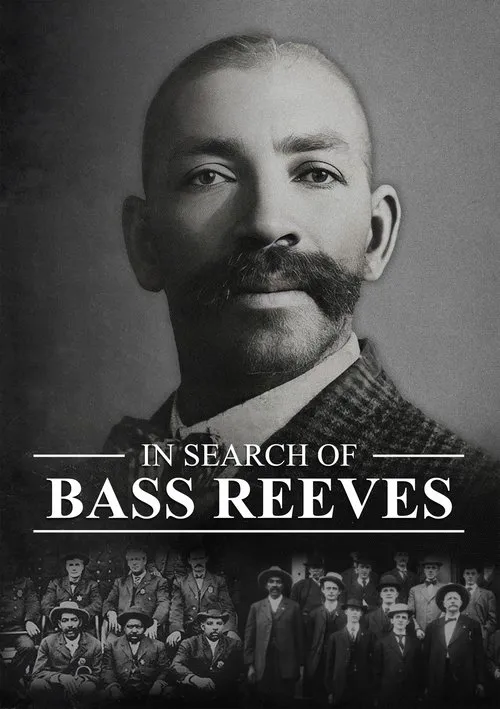In Search of Bass Reeves

Plot
In Search of Bass Reeves is a biographical drama film inspired by the true story of Bass Reeves, a former slave who became one of the most iconic lawmen of the Old West. Born into slavery in 1838, Bass Reeves was taken in by his Cherokee owners, who taught him their language and customs. After being sold to a plantation in Texas, Reeves learned the ways of the wilderness and the skills necessary for survival. However, his life took a drastic turn in 1862, when Reeves escaped from slavery and fled to the Indian Territory, which is now part of Oklahoma. He spent several years living with the Creek Nation and learning the ways of the Native Americans, eventually becoming a skilled hunter and tracker. When the Civil War broke out, Reeves enlisted in the Union Army's 1st Cavalry Regiment, led by Colonel Phillips and his brother-in-law, Colonel Stand Watie, a Cherokee. After the war, Reeves became a deputy U.S. Marshal, and over the course of 32 years, he would go on to capture over 3,000 outlaws, many of whom were notorious figures of the Old West. Reeves's career as a deputy U.S. Marshal began under the supervision of Judge Isaac Parker, who oversaw the U.S. Court for the Western District of Arkansas. Known as the "Hanging Judge," Parker was notorious for his harsh sentencing and unwavering commitment to justice. Reeves's reputation as a lawman and tracker quickly spread throughout the region, and he became a trusted ally of Parker in his efforts to bring order to the chaotic and lawless frontier. Throughout his illustrious career, Reeves faced numerous challenges and dangers, including confrontations with notorious outlaws such as Sam Sixkiller, a Cherokee outlaw who had been a thorn in Reeves's side for years. Reeves's experiences on the job took a toll on his personal life, including the loss of his first wife, Katy, who died under mysterious circumstances. Despite these challenges, Reeves persevered, and his legend only grew with each case he solved. He became known as the "Black Scout" for his ability to blend in with the surroundings and gather intelligence without being seen. His extensive knowledge of the wilderness and the Native American tribes who inhabited it made him an invaluable asset to the U.S. Marshals Service. One of Reeves's most notable cases involved the capture of the notorious outlaw, Sam Sixkiller. For years, Sixkiller had been evading capture, and his exploits had become the stuff of legend on the frontier. Reeves finally tracked him down to a remote cabin in the Indian Territory, where he engaged Sixkiller in a fierce gunfight. In the end, Reeves emerged victorious, and Sixkiller was brought to justice. Throughout his career, Reeves was also known for his relationships with the Native American tribes, who respected his honesty and integrity. He became a trusted ally and friend to many of the tribal leaders, and his knowledge of their customs and language proved invaluable in his work as a lawman. Reeves's life also took a dramatic turn with the arrival of the railroad in the Indian Territory. As the region opened up to settlement, Reeves found himself facing a new set of challenges, including the influx of new settlers and the conflicts that arose between them and the Native American tribes. He worked tirelessly to maintain peace and order in the region, often putting himself in harm's way to prevent bloodshed. As Reeves approached the end of his career, he was still as active and effective as ever. He continued to serve as a deputy U.S. Marshal until his retirement in 1907, and his legacy as one of the greatest lawmen of the Old West remains unparalleled to this day. His story is one of hope and redemption, of a former slave who rose to become a legend of the law, and his impact on American history is a testament to the enduring power of courage and determination.
Reviews
Recommendations




